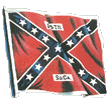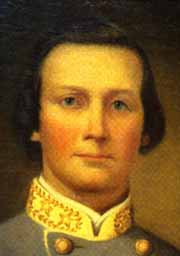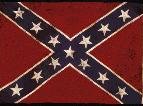|
South Carolina C.S.A.
|

|
June 8, 1864 through July 18, 1864 Report of Ellison Capers Twenty-fourth South Carolina, Gist Brigade
|

|
South Carolina C.S.A. |
|
|
| Report of Ellison Capers, Commanding 24th South Carolina |
|
On the ninth of June the corps formed a line of battle in rear of Pine Mountain, General Bate’s division being in position on the mountain. On the fifteenth and sixteenth the line of battle was again changed, the enemy not being in view, and on the nineteenth Walker’s division was put in position south and west of Kenesaw Mountain, in front of Marietta. We formed on the right of Hardee’s corps, French’s division, of Polk’s corps being on the left of French’s division and occupied Hardee’s extreme right. The line was strongly intrenched with head logs on the work, and obstruction in front. The enemy appeared in force on the twentieth, and pressed up against our pickets. The fighting on the picket-line was severe all day, Company I being the only company of he Twenty-fourth engaged. The enemy established his line of battle about 300 yard in our front, and his fire, both of small-arms and artillery, was so constant and severe that the men had to keep close behind the work and constantly on the watch. Major O’Neill, the gallant commander of our brigade pickets, and the major of the Sixteenth (South Carolina) was killed while maintaining the integrity of our picket line. The weather was very bad, and the position of the troops behind the works most uncomfortable. On the twenty-fourth, the enemy in our front attempted to drive in the picket-line with a line of battle, but by the general’s order I moved my regiment forward, and deployed it so as to cover the whole brigade front, and we repelled the assaults and maintained the line. The fighting was incessant, and the men got but little rest. In the fight of the twenty-fourth, we captured a sharpshooter who had a small looking-glass attached to the butt of his musket, so that he could sit behind his breast-work, perfectly protected, with his back to us, and by looking into his glass, sight along the barrel of his piece. On the twenty-seventh of June, early in the morning, the enemy began a general shelling of our line. About 9:30 o’clock he moved gallantly forward to a general assault. Our pickets were driven in, and the enemy came on to the assault of our position. The steady fire of our line, and the raking artillery fire which General French sent down our front from his batteries upon our right, repelled every charge, and finally drove the enemy back to his fortifications. But he succeeded by dark in fixing his line of battle within 100 yards of our position, and pouring a galling fire of musketry. We could have no pickets, and the men were constantly firing and watching. For one week we held our position under this fire, and on the night of the second of July, after thirteen days of unceasing exertion, fighting, and watching, we retired from the position, the Twenty-fourth having lost one officer and nine men killed, four officers and twenty-seven men wounded and sixteen men captured; total loss at Kenesaw, 57. Our next position was taken near Smyrna Church, about five miles south of Marietta. The enemy pressed forward, and annoyed us on the third by artillery fire while we were intrenching our position. One man was killed and one wounded by this fire. On the fourth of July we were under a constant fire of artillery, but the enemy’s line of battle did not come nearer than a mile to our position. On the night of the fourth we again retired from the position we had strongly fortified, and marched on the Atlanta road to a position some five miles to our rear. Except to furnish a detail for picket duty, the Twenty-fourth was not called on for service in this position, and remained in bivouac until the ninth of July when the regiment marched with the army and crossed the Chattahoochee River near the railroad bridge. I had the honor to read the commanding general’s address to the brigade, and to congratulate the command upon the prospect of successful battle. The order of battle was received with enthusiasm, and the most confident spirit prevailed. Next day, the eighteenth, while we were forming to march from our bivouacs to the right a rumor prevailed that General Johnston had been removed from command, and after we had marched some distance on the road to Atlanta a courier handed me a circular order from General Hood, announcing General Johnston’s removal and assuming command. Shortly after the farewell address of General Johnston was received and read to the regiment. It is due to truth to say that the reception of these orders produced the most despondent feelings in my command. The loss of the commanding general was felt to be irreparable. Continuing the march and passing by his headquarters Walker’s division passed at the shoulder, the officers saluting, and most of the latter and hundreds of men taking off their hats. It had been proposed to halt and cheer, but General Johnston hearing our intention requested that the troops march by in silence. We marched across the railroad and went into bivouac east of the Peach Tree road, some three miles from Atlanta. And thus closed the campaign under General Johnston’s command. From May 6 to July 18, inclusive, the Twenty-fourth had been constantly on duty. During this period we had been constantly in the presence of the enemy, fighting, on picket, in the breast-works, or covering the brigade in retreat. The month of June was characterized by incessant rain, and he marching and work in the mud were most distressing to the men and officers. Our bivouacs were always in line of battle, often in the trenches, and we seldom got a night’s rest. At Kenesaw Mountain, particularly, we got but little rest, and for the last five days none at all. But the pluck and spirit of the regiment never failed. |

|
|

|